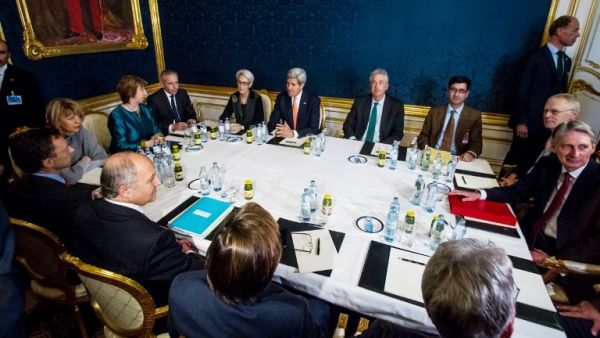Iranian officials will meet with European members of the P5+1 group in Istanbul on Thursday under the ongoing diplomatic effort to secure a deal over Tehran's disputed nuclear program.
The meeting with British, French and German diplomats was announced by Iran's foreign ministry spokeswoman Marzieh Afkham during a weekly press briefing in Tehran on Wednesday.
The EU, which has chaired the P5+1 talks, said separately that its political director Helga Schmid would also attend.
However, a senior State Department official said there were no plans for the United States to participate in the Istanbul talks, which he said were part of the bilateral discussions between Iran and the EU.
Under an interim agreement, representatives of the P5+1 — United States, Russia, China, Britain, France and Germany — and Iran gave themselves until March 31 to reach a political deal. The two parties are seeking a comprehensive accord by a June 30 deadline.
Two such deadlines were missed last year and both sides have admitted that big differences remain on the hard detail of what the final pact would look like.
Afkham told reporters there could be meetings with P5+1 members at a security conference in Munich next month, where Iran's Foreign Minister Mohammed Javad Zarif is already scheduled to meet US Secretary of State John Kerry.
Zarif meanwhile was quoted by an Iranian newspaper on Wednesday as saying there was a "general agreement that Iran could have a nuclear enrichment program, no sites will be closed and sanctions should be lifted."
"But the discussions are continuing on the level of enrichment, on when Iran will begin industrial scale enrichment and how nuclear research and development will be done," he told Etemad daily.
Under an interim deal, Iran's stock of fissile material has been diluted from 20 percent enriched uranium to five percent in exchange for limited sanctions relief.
Tehran insists its nuclear program is for domestic energy production and that it needs to increase its enrichment capacity to make fuel for a fleet of power reactors that it has yet to build.








